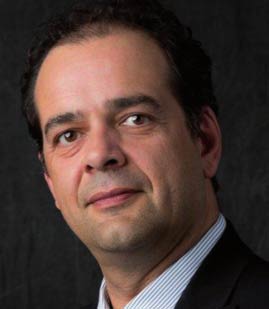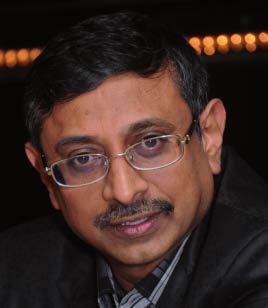|
 Arnaud Bernaert, head of Global Health and Healthcare of the World Economic Forum CHINA DAILY
|
This is crucial, as innovation - recognized as a decisive driver of economic growth - is boosted by scientists who have been given the opportunity to carry out high-risk, high-gain research at the frontier of knowledge.
As people live longer, the need to invest in healthcare is growing exponentially. This is true not only in Asia, but throughout the world.
It is within such a challenging environment, that the World Economic Forum will seek to elevate the role of health in driving socioeconomic growth by engaging three stakeholders - governments, businesses and communities.
The immediate challenge in emerging markets is to improve access to care and connectivity for patients, whereas in mature economies it is to improve outcomes at lower cost.
With significant multistakeholder investment and partnership programs, we can transform societies more rapidly and profoundly than in any previous age.
For example, the Forum's "The Future is Healthy" initiative aims to demonstrate that healthy populations can drive socio-economic growth.
To ensure this occurs, the initiative encourages both private and public investment in initiatives with better health returns on investment.
This involves more than just saving lives - according to a report from The Lancet, the world's leading medical journal, reductions in mortality could instigate economic growth of more than 10 percent in low- and middle-income nations.
But to do so we need to share our expertise, our resources, and most importantly, our ideas.
We need to take visionary ideas, encourage debate about their efficacy and implementation, and then promote such concepts to become transformative achievements.
|
 V.S. Parthasarathy, chief financial officer of the Mahindra Group CHINA DAILY
|
At such a moment and with the right dialogue, we can help to shape a healthier future.
As Milton Friedman said, "The poor remain poor not because they are lazy but because they do not have capital." Several reports have marked the concurrence of financial inclusion to reduced robbery rates and higher literacy rates which are key parameters to assess the well-being of a nation.
It is in this context that the micro-financing institutions are crucial to emerging economies, as sustained financial inclusion not only helps individuals but also society at large.
For all economies combating challenges to financial inclusion, a pervasive financial sector is a must. Traditionally banks have avoided operations in remote locations due to high costs and low returns.
But many leading banks are now getting into partnerships with non-governmental organizations and micro-finance institutions.
While the immediate purpose is to micro-credit, it opens up the field for wide variety of financial services such as insurance and savings products.
Technology has a paramount role to play in creating the backbone for financial inclusion models. It is technology that is becoming the enabler for institutions, be it the scanning and uploading of documents from remote locations, banking tips via text messaging, or grievance and counselling centers.
Technology binds the processes together. With the challenge of finding skilled professionals at remote locations, technologies while being effective have also to be simple enough to be adopted and flexible enough to be adapted to regional requirements.
With branchless banking solutions, banks and financial institutions can seamlessly offer last-mile banking services in a cost-effective manner to the unbanked and under-banked segments by enabling consumers to easily access banking services through agents rather than bank branches. This brings in operational efficiencies and a larger served market base.
Everyone has the right to dream and no dream should fade because it did not find an expression. Let's create an environment, where ideas flourish and create a virtuous cycle.





